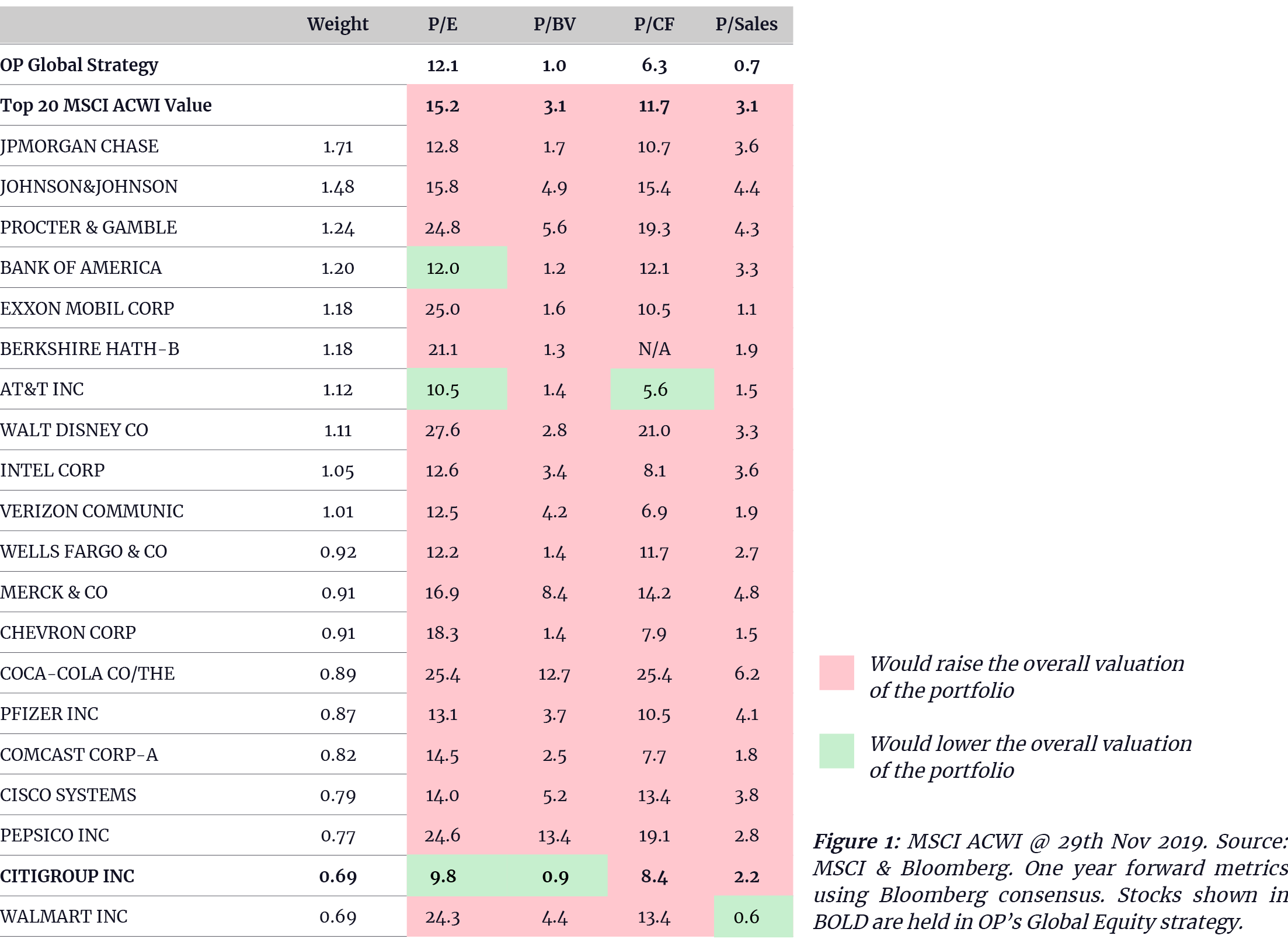With world stock markets making new highs this month, we have seen the switch back to value, that started in mid-August, blunted once again as momentum and growth take the lead once more. Overall, this has been a difficult year for value investors, especially those who provide, as one consultant described us recently, “proper value”.
As stock-driven, bottom-up investors we ignore the make-up of the indices to which our performance is often compared. Most commonly this comparator is either MSCI World or MSCI All Country World, but often style comparators such as MSCI World/ACWI Value are used. MSCI’s index construction method means that country weights for the Value and Growth versions of its indices are similar no matter whether one market like the US, is historically expensive or not.
The chart below compares the Oldfield Partners global equity strategy to the top 20 stocks in the MSCI ACWI Value index. The first take-away is that all but one of the stocks are from the US.
The combination of the desire to have equal market sizes of the value and growth portions of the index at a country level and the relative lack of earnings growth at companies like Procter & Gamble (yet still valued at 25 times one year forward earnings!), Walt Disney (28 times) and Coca-Cola (25 times) sees them assigned to the value index. Looking through this list one is struck by how high the valuation multiples of many of these stocks are with seven of them having one-year forward price earnings ratios of more than 20 times and seven with price to book ratios of more than four times. When value is out of favour, these ‘value’ stocks will tend to perform better than “proper” value companies on much lower valuations.
The evolution of Warren Buffett’s investment style away from his mentor Benjamin Graham towards that of his business partner, Charlie Munger, led to a broadening of the ‘church’ of value investing. We are aware that the last decade of poor relative performance for value has stretched the breadth of the value ‘church’ more widely still. We have not altered our views on what constitutes value, looking for essentially sound companies valued lowly in absolute terms and relative to their own histories where expectations are already low. We accept that much of the time, because of the mix of stocks in the portfolio, the return on equity of the portfolio will tend to be a bit lower than that of MSCI World. The reasons for this vary by stock but we are often attracted to companies that are under-earning after a problem or mis-step and are now in recovery mode while others, like many of our Japanese holdings past and present, have inefficient balance sheets full of underappreciated assets such as developable land or holdings in listed companies, that their reported returns on equity are low despite acceptable returns on equity from their operating businesses. Back over time our portfolio ROE has varied, reflecting which areas of the market were cheap – in 2006 our portfolio was characterised by high ROE companies because they were unusually cheap while today, they patently are not.





